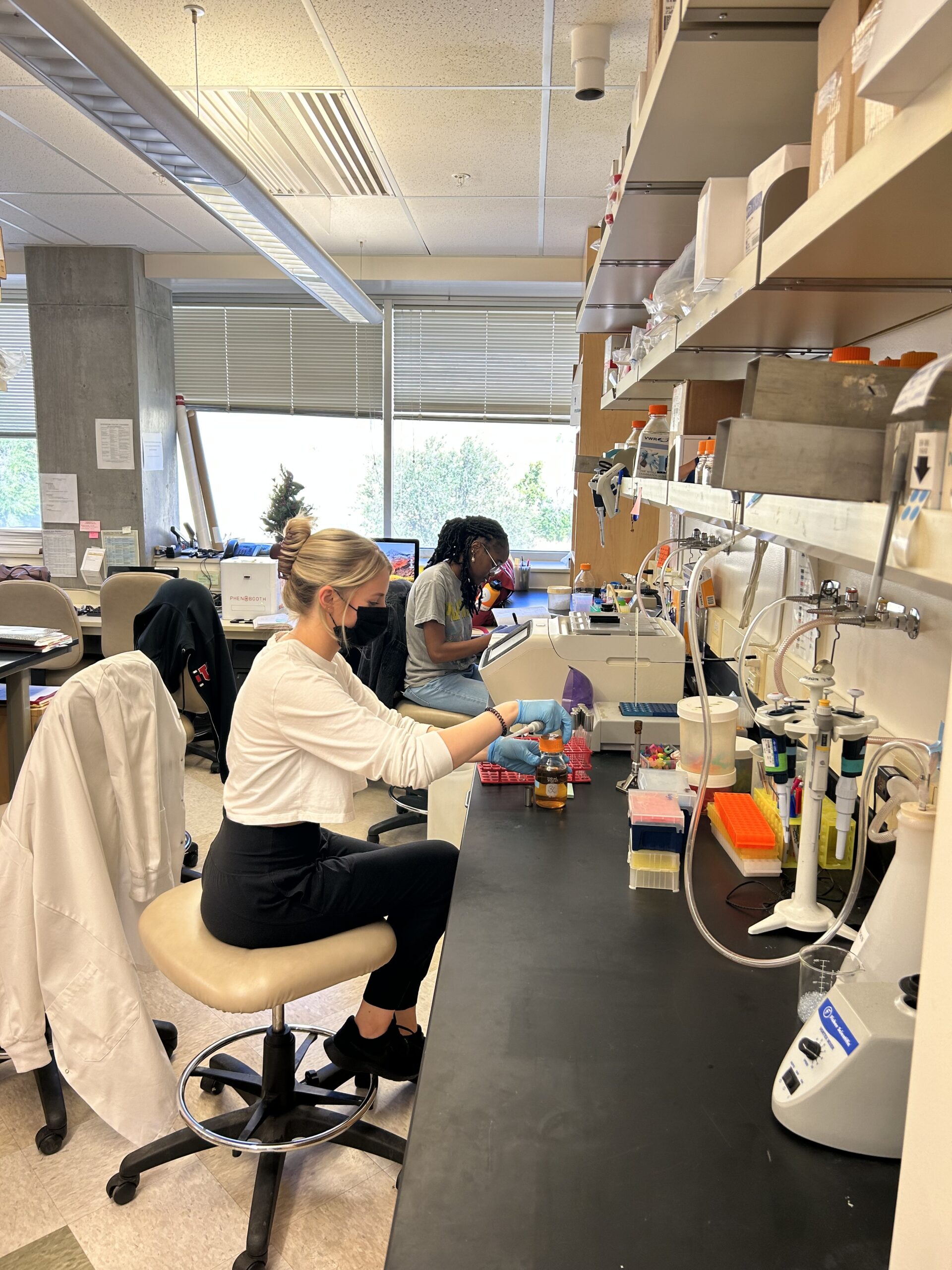Project Background
Mitochondria are double membrane-bound organelles essential for cellular metabolism, and mitochondrial dysfunction is linked to a host of metabolic disorders and age-related neurodegenerative diseases. Thus, determining mechanisms that preserve the functional health of the mitochondrial network is of critical importance. Recently, we discovered novel structures emerging from mitochondria, we've called mitochondrial-derived compartments (MDCs), that form in response to multiple cellular stress conditions and also form in old-aged cells. Using fluorescence microscopy, we've discovered that MDCs incorporate only a subset of the mitochondrial proteome, enriching for mitochondrial membrane proteins, while leaving the rest of the organelle intact. Because MDCs incorporate only a subset of the mitochondrial proteome, we've hypothesized that this unique mitochondrial domain remodels mitochondria in response to stress to preserve mitochondrial homeostasis. However, how MDCs form, the proteins involved in MDC formation, and how certain mitochondrial proteins become sequestered into MDCs remains unknown. Intriguingly, we've identified several protein factors required for MDC formation and this SPUR project will focus on dissecting the functional role of one or more of these putative regulatory factors in MDC formation. In this project, we will use a model organism, the budding yeast Saccharomyces cerevisiae, to create both targeted and unbiased mutations within the genes of these regulatory factors and assess the impact of these mutations on both MDC formation and MDC-dependent mitochondrial remodeling.
Student Role
The SPUR student will be performing research in the Adam Hughes laboratory located in the Emma Eccles Jones Medical Research building, in association with the Biochemistry department. The Hughes research group is a vibrant and diverse research community consisting of postdoctoral fellows, graduate students, and undergraduate research students. Together, we use yeast and mammalian cell systems to interrogate cell response pathways that protect against age-induced cellular decline. This SPUR project will use a model organism, the budding yeast Saccharomyces cerevisiae, to investigate the role of conserved mitochondrial proteins in the formation of a novel mitochondrial domain that our lab discovered, called mitochondrial-derived compartments. In this project, the SPUR student will be paired with a postdoctoral fellow, Zachary Wilson, who will provide daily guidance and mentoring throughout the project. Importantly, this project is strongly "wet-lab" based as the student will be expected to spend most of their time within the lab, learning to grow, manage, and manipulate bacterial and yeast cell cultures. The student will perform experiments that involve modifying yeast genetics, creating targeted mutations within genes, performing foundational molecular biology and biochemical experiments, and using fluorescence microscopes to analyze mitochondrial morphology in live-cells. The student will be expected to attend weekly group meetings with the entire Hughes lab and present their research to the group at the end of the summer. Importantly, it is expected that the SPUR student be a conscientious lab member that supports all lab-related activities and treats everyone with mutual respect and professionalism.
Student Learning Outcomes and Benefits
This SPUR project will use an amalgam of biomedical research techniques in the fields of genetics, cell and molecular biology, and biochemistry providing a foundational experience transferable to multiple career paths. A primary learning objective is for the SPUR student to feel that they belong within our community of scientists and that they can integrate their unique background and perspectives within the science they perform and within biomedical research communities. In this project, the SPUR student will learn about the molecular drivers of age-related disorders and how they are studied. In doing so, The SPUR student will actively engage in the scientific discovery process by developing research questions, acquiring new technical skills, interpreting data, developing preliminary conclusions, and designing experiments to examine new hypotheses or to overcome technical limitations. The SPUR student will practice reading and evaluating primary scientific literature that is pertinent to their research project and will be exposed more broadly to other research topics through journal club discussions with the Hughes lab. To develop skills in science communication, the SPUR student will be supported in creating their summer research presentations that include the requirements of the SPUR program, as well as an oral-presentation to the entire Hughes research group, and through the writing/review of any of their work that is included in future research articles. In total, this SPUR project will significantly enhance the academic, scientific, and professional development of the prospective SPUR student in preparation for a scientific, biomedical research, or medical professional career.

Zachary Wilson
As a postdoctoral fellow in the Hughes lab, I am in the lab daily performing research, supporting lab duties, and helping colleagues with their projects. As such, a SPUR student can expect to receive daily mentoring from me and I will be available to discuss their progress, answer questions, support their research, and promote their learning from the scientific literature and SPUR-sponsored professional development activities. I have five key aspects that I value in a mentor/mentee relationship: clear communication, aligned expectations, valued diversity, built confidence, and professional growth. As mentioned, I plan to be constantly available so that questions, issues, goals and/or expectations can be frequently discussed and clearly communicated. The expectations between myself and the SPUR student will be established at the beginning of the summer and constantly reevaluated so that we can both accomplish our goals. To value diversity, I strive to build mentor/mentee relationships built on a foundation of respect and trust such that differences in beliefs, thinking, time commitments, life and work styles can be valued and accepted without judgement. It is important to me that a mentee builds confidence in developing their own thoughts and theories. That they feel supported to share these ideas with their peers and to confidently accept challenges, so that their thoughts can strengthen and evolve. Lastly, to support the professional development of my mentees, our daily discussions may include identifying gaps in their learning or career goals and finding resources to facilitate achieving these goals.
